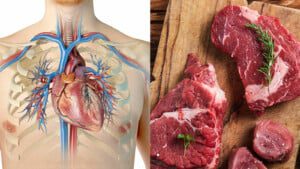Did you know that prebiotics and probiotics can completely transform your health? Both are vital for your immunity, and they occur naturally in many of the foods you eat. Probiotics seem to be the one getting all the attention in the health industry, but prebiotic supplementation is just as necessary.
Justifiably, there’s a lot of confusion about prebiotics and probiotics. Could taking one be better than taking the other, and are the two related?
Understanding the Basics of Prebiotics and Probiotics
Have you ever heard the term oligosaccharides? It’s a type of indigestible fiber that is found in prebiotics. Within the walls of your gut is healthy bacteria, and this fiber is like a fertilizer that makes them grow.
Because the fibers found in prebiotics are not able to be digested, they can effortlessly move through your digestive system. The action takes place in the large intestines, as this is where the bacteria live. Once they are absorbed, they can go to work feeding the bacterium.
You can find prebiotics in nature by consuming fruits and vegetables as well as soybeans and garlic. Foods high in prebiotics include asparagus, bananas, and oats.
On the flipside, probiotics have healthy strains of living bacteria. The bacteria found in these foods are remarkably like the good bacteria that thrive within your body. They help to increase the amounts of healthy bacteria already present in the gut.
Many people have chosen to take probiotic supplements, but you can get a sufficient amount by eating foods like kimchi or yogurt. Having a diet rich in sauerkraut, miso, kefir, and buttermilk can increase the amounts of probiotics you ingest.
Health Advantages of Prebiotics
The benefits of prebiotics are extensive, and they are widely used in holistic health plans across the globe. While some may think it’s more of an Eastern remedy, it has become universally acceptable in Western medicine.
Remarkably, prebiotics is useful for your mental health needs. It’s possible they can help you return to a regular sleep schedule following an exceptionally traumatic experience. Additionally, they help with anxiety by reducing the level of the most common stress hormone, cortisol.
If you’re on the fence of whether you should use prebiotics, then here are some valuable benefits to adding these to your current health plan. Prebiotics can:
- Lower the risks of developing colon cancers
- Allow calcium to be better absorbed by the body.
- Raise the PH levels to create a healthy gut
- Help with vaginal mycosis.
- Ease or eradicate peptic ulcers>
- Fights harmful bacteria like E. Coli and Salmonella
Health Advantages of Probiotics
Probiotics and prebiotics are vastly different, yet both have advantages. When you consume food or a supplement with probiotics, you are helping your body to digest and absorb the nutrient you consume. In return, your immune system becomes robust due to the workings of this beneficial bacteria. Probiotics can:
- Resist H. Pylori infection
- Reduces inflammation in the body
- Reduces blood pressure levels to normalize it
- Heals eczema and other problematic skin conditions
- Reduces food allergies
 The Blended Superpower of Prebiotics and Probiotics
The Blended Superpower of Prebiotics and Probiotics
The health benefits of prebiotics and probiotics are undeniable. The primary purpose of these substances is to maintain a healthy gut that has a balanced microbiome. The connection between your gut and how you feel is coming to the forefront.
When it comes to mental health, doctors always want to prescribe antidepressant medications when someone is feeling blue or has bouts of anxiety. However, these medications don’t work for everyone. Studies show that antidepressants only work for a handful of people.
Consequently, when people go on the keto diet or other such eating plans, many notice that they have mental clarity. The old saying is that you are what you eat, and when your diet is full of junk foods, your health suffers. However, when you’re getting the prebiotics and probiotics you need from fruits and vegetables, you suddenly start to feel better.
The health benefits of prebiotics and probiotics are robust. However, taking one without the other will only give you a portion of the healthy bacteria you need. If you are eating the right amounts of fruits and vegetables, you won’t need to take any additional supplements.
However, most Americans don’t get nearly the required amounts because they live on fast food and processed junk.
Combining Prebiotics and Probiotics
Combining healthy bacteria to your gut and “feeding” the healthy bacteria to make it multiply is potent! Here are five advantages to combining prebiotics and probiotics to your wellness journey.
• Better Digestion
By combining both substances into your diet, you can thwart issues like IBS, chronic constipation, and diarrhea. Additionally, the leaking gut syndrome can be a thing of the past. Did you know those gut problems are one of the leading causes of irritable bowel syndrome?
• Remedy Obesity
For decades, the medical community has looked for a cure for obesity. Invasive surgeries have been the closest they’ve come to eradicating the problem. However, new evidence shows that have an imbalanced microbiome in the gut can cause obesity.
The beautiful thing is that when you start on a regimen of probiotics and prebiotics, you can lower your body mass index quickly.
• Mend Ulcerative Colitis
Chronic bowel disease is a miserable condition, especially ulcerative colitis. There are painful ulcers that develop in the gut that can make life unpleasant. Thankfully, you can combat this terrible condition by the simple addition of probiotics and prebiotics.
These products have helped patients with inflammation caused by irritable bowel conditions.
• Encourage Beneficial Cholesterol Levels
Your LDL and HDL cholesterol levels are an essential part of your health. If your lousy cholesterol becomes too high, then you can have a heart attack or stroke. While the first remedy of choice is medications to treat high cholesterol levels, adding probiotics and prebiotics is a better option.
They are safer than medications and don’t have the horrific side effects of statin drugs.
• Improve Your Immune System
Alarmingly, more than 90 percent of all illness and disease within the body can be traced back to poor gut health. When your microbiome is off-kilter, then your entire body pays the price. However, when you consume probiotics and prebiotics, you will boost your immune system to fight off these foreign invaders.
Additionally, the healthier the bacteria you have in your gut, the better your health. When you use one, you’re only giving yourself half of the benefits. However, using both has a superior immune-boosting effect.
When you take these substances, it changes the manifestation of cytokines. What are cytokines? Well, think of them as little messenger molecules in your body. These molecules help your cells to communicate better.
When infection or an inflammatory condition is present, it helps to tell the immune system to respond faster to eradicate the illness quicker.

Symbiotic Foods
While you may want to reach for a supplement, some foods have both probiotics and prebiotics in them. These foods are called symbiotic. Did you know that you can make foods symbiotic by eating the right combinations of things? Here is a list of combinations for ultimate gut health.
•Yogurt with Fruit Topping
You need to find a sugar free yogurt that has both live and active cultures in it. Yogurt has high levels of calcium and protein. Try adding things like chia seeds, mango, bananas, or flax seeds to the top. It becomes a tasty symbiotic treat.
•Kombucha and Chia Seeds
Fermented tea has become all the rage, and you can find it in nearly every health store and supermarket across the country. This tea is packed with probiotics. Chia seeds, on the other hand, are an excellent source of natural prebiotics.
If you mix the two of them, you can take a tremendous symbiotic beverage with you on the go.
•Miso Soup with Veggies
One of the few fermented soups out there is miso. It’s a symbiotic food when you add fresh vegetables to it. Nothing could taste better than some onions or leaks and maybe even an artichoke. Since it has millions of microorganisms in it, it complements the ones already living in your gut.
•Oatmeal and Fruit or Flax Seeds
You’ve probably heard that oatmeal is heart-healthy. Well, what you probably don’t know is this food is loaded with prebiotics.
To add probiotics to the mix, add some soy milk and fresh fruit or flax seeds. Oatmeal is the perfect breakfast food, but you can enjoy it as a treat at any time.
 Final Thoughts on Supplementing with Prebiotics and Probiotics
Final Thoughts on Supplementing with Prebiotics and Probiotics
There’s always a debate about taking supplements versus getting them in nature. While getting them in your foods is still best, make sure you’re consuming nutritious foods. Adding a supplement to your diet doesn’t give you a ticket to eat junk food and yet have gut health.
One downside of using probiotic supplements is that live bacteria can die when exposed to heat. As they age, live bacteria can also perish. Thankfully, prebiotics doesn’t require the upkeep that probiotics do. However, having a diet full of these foods is always the best option. It’s inexpensive, and you don’t have to worry about storage, temperature, and age issues.
The post Doctors Explain How Prebiotics and Probiotics Work Together for Gut Health appeared first on Power of Positivity: Positive Thinking & Attitude.
【Top 10 Malaysia & Singapore Most Beautiful Girls】Have you follow?
